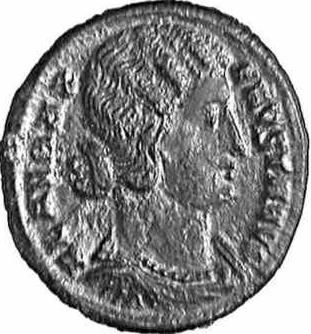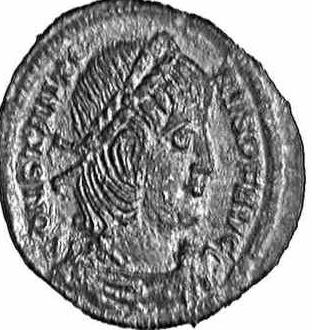of Rome Family - Ourfolk
Emporer Constatine of Rome 27 FEB 228 - 22 MAY 337
Emporer Constatine was born on 27 FEB 228 in Naissus, Serbia and died on 22 MAY 337 (age: 109).
He was the son of Flavius Valerius Constantius (ABT 250 - 25 JUL 306) and Helena (Constantius) (248 - 328).
Emporer Constatine was married to Empress Flavia Maxima Fausta (of Rome) .
Empress Flavia was born on 289 and died on 326 .
She was the daughter of Emporer Manimianus I Herculius (D: 310) and Eutropia (Herculius) .
View Family Chart
- - -
| Parents | Grand Parents | |||||||||||||||||||||||||||||||||||||||||||||||||||||||||||||||||||||||||||||||||||||||||||||||||||
| ⌈ Flavius Valerius Constantius (ABT 250 - 25 JUL 306) | ||||||||||||||||||||||||||||||||||||||||||||||||||||||||||||||||||||||||||||||||||||||||||||||||||||
| Emporer Constatine of Rome | ||||||||||||||||||||||||||||||||||||||||||||||||||||||||||||||||||||||||||||||||||||||||||||||||||||
| ⌈ King Coilus Ii of Conchester (D: ABT 232) | ||||||||||||||||||||||||||||||||||||||||||||||||||||||||||||||||||||||||||||||||||||||||||||||||||||
| ⌊ Helena (Constantius) (248 - 328) | ||||||||||||||||||||||||||||||||||||||||||||||||||||||||||||||||||||||||||||||||||||||||||||||||||||
| ⌊ Strada (of Conchester) | ||||||||||||||||||||||||||||||||||||||||||||||||||||||||||||||||||||||||||||||||||||||||||||||||||||
Having seen a vision of the Flaming Cross in the sky at noon, Constantine
won a key victory over his rival at Tiber River's Mulvius Bridge 10-28-312.
He became a Christian, granting toleration to the religion in the edict of
Milan (313). From his victory at Chrysopolis (09-18-323) he ruled both the
eastern and western Roman empires. He presided as sole emperor at the
Council of Nicaea (325). He laid the foundation of the city of
Constantinople in 326, establishing the imperial capital there; he was
inaugurated there 05-11-330 as the city was dedicated to the Blessed
Virgin. Christianity had become the state religion. Constantine was declared
'Emperor' in 306 A.D. at Eboracum, now York, England.
--Compton's on-line Encyclopedia, America On-Line, 5/95:
won a key victory over his rival at Tiber River's Mulvius Bridge 10-28-312.
He became a Christian, granting toleration to the religion in the edict of
Milan (313). From his victory at Chrysopolis (09-18-323) he ruled both the
eastern and western Roman empires. He presided as sole emperor at the
Council of Nicaea (325). He laid the foundation of the city of
Constantinople in 326, establishing the imperial capital there; he was
inaugurated there 05-11-330 as the city was dedicated to the Blessed
Virgin. Christianity had become the state religion. Constantine was declared
'Emperor' in 306 A.D. at Eboracum, now York, England.
--Compton's on-line Encyclopedia, America On-Line, 5/95:
Although both Constantine's and Fausta's specific dates of birth
are subject to question, it is certain that he was her senior by fifteen or more years.
Constantine's drive for sole power must have put a strain on the relationship on at
least two occasions. In 310, when Maximian plotted against Constantine, Fausta
revealed the plot, thus contributing to her own father's end. On 28 October 312
Fausta's brother, the emperor Maxentius, suffered defeat and lost his life in the
famous Battle of the Milvian Bridge. The next day his body was recovered from the
Tiber River. Constantine had the severed head affixed to a pike and carried through
the streets of Rome. We do not knowFausta's reaction to this act of brutality.
are subject to question, it is certain that he was her senior by fifteen or more years.
Constantine's drive for sole power must have put a strain on the relationship on at
least two occasions. In 310, when Maximian plotted against Constantine, Fausta
revealed the plot, thus contributing to her own father's end. On 28 October 312
Fausta's brother, the emperor Maxentius, suffered defeat and lost his life in the
famous Battle of the Milvian Bridge. The next day his body was recovered from the
Tiber River. Constantine had the severed head affixed to a pike and carried through
the streets of Rome. We do not knowFausta's reaction to this act of brutality.
Last change (on this page): 15 OCT 2018

